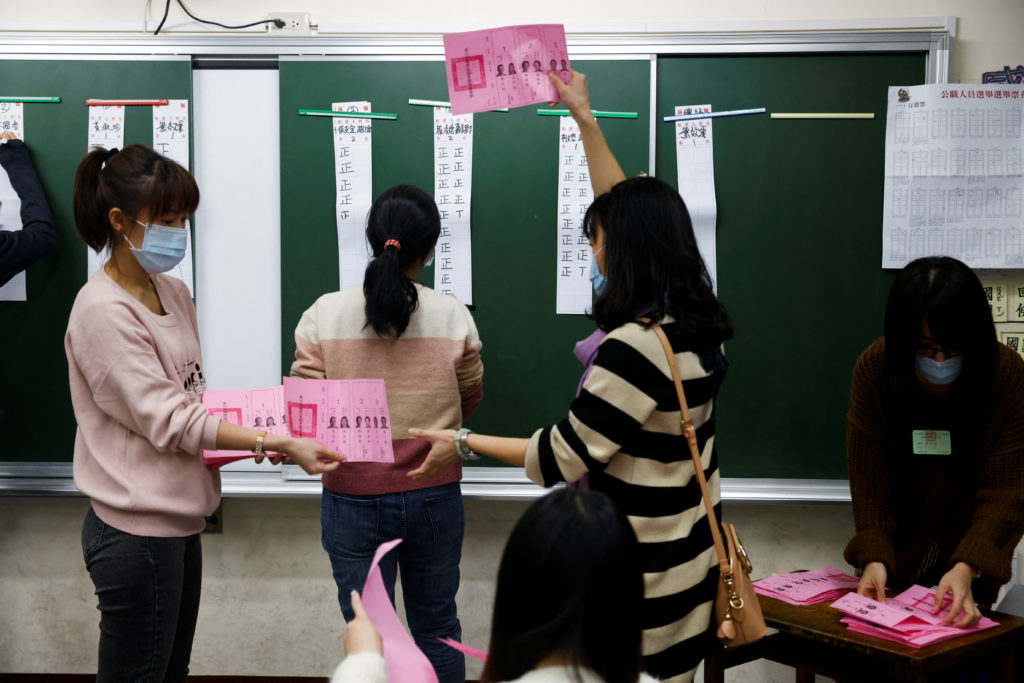The rumors about vote fraud started swirling as the ballots in Taiwan’s closely watched presidential election were tallied on Jan. 13. There were baseless claims that people had fabricated votes and that officials had miscounted and skewed the results.
In a widely shared video, a woman recording votes mistakenly enters one in the column for the wrong candidate. The message was clear: The election could not be trusted. The results were faked.
It could have been Taiwan’s Jan. 6 moment. But it wasn’t.
Worries that China would use disinformation to undermine the integrity of Taiwan’s vote dogged the recent election, a key moment in the young democracy’s development that highlighted tensions with its much larger neighbor.
In repelling disinformation, Chinese and domestic, Taiwan offers an example to other democracies holding elections this year.
This year, more than 50 countries that are home to half the planet’s population are due to hold national elections. From India to Mexico, the U.K. to Russia, the outcomes of the elections will test the strengths of democracies and countries with authoritarian leaders.



The first democratic election in Taiwan was in 1996. Probably a major reason why the Taiwanese are so wary of Chinese influence is because most voters have actually lived through authoritarian rule.